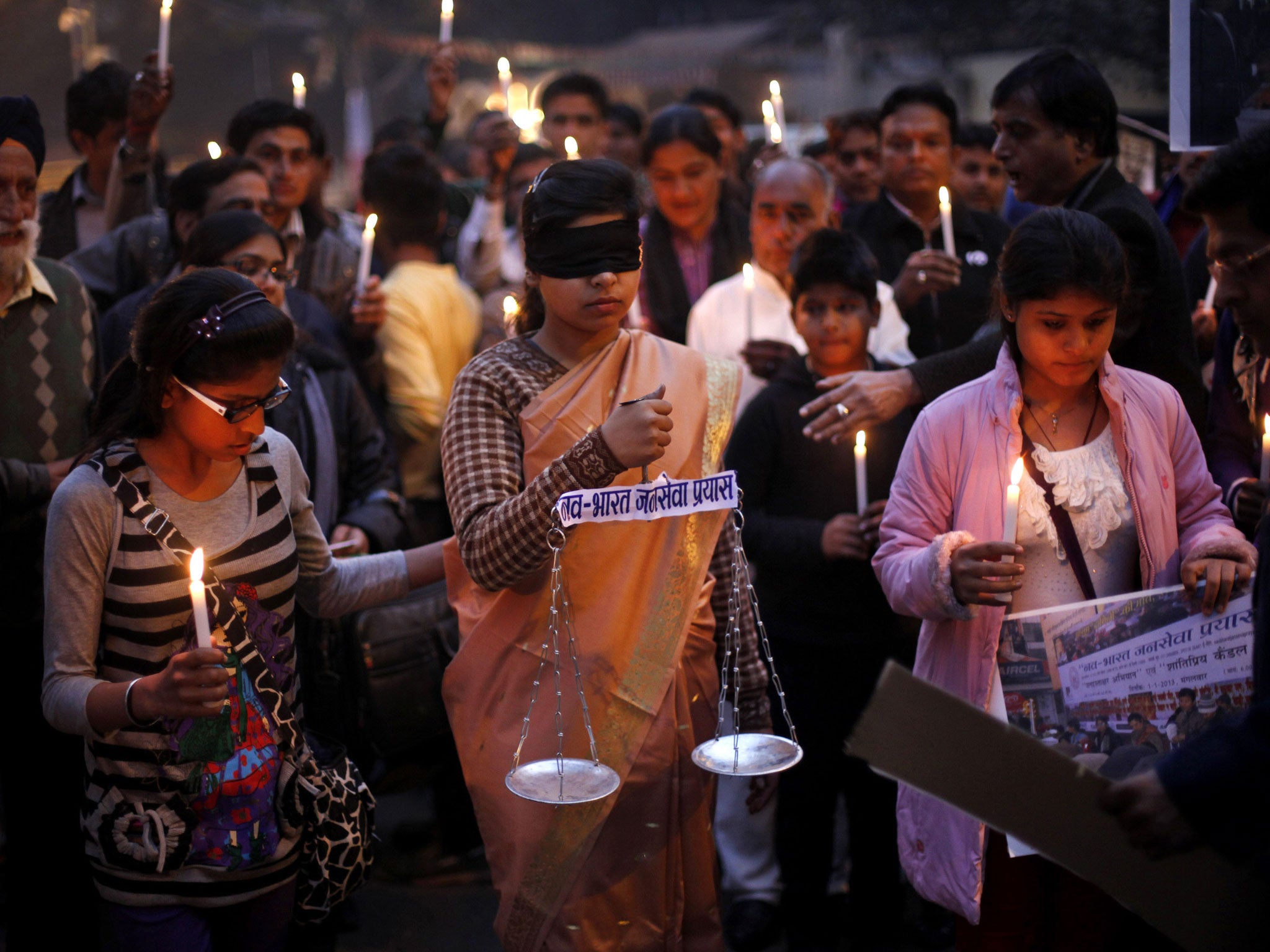Muslims join pledge on women's rights
Hardliners defied as historic blueprint to tackle violence against girls and women is agreed at the United Nations

A remarkable coalition of Conservative Muslim, Roman Catholic, and liberal Western countries have joined together to approve a historic United Nations blueprint to combat violence against women and girls. In doing so, they ignored strong objections from Egypt's Muslim Brotherhood that it clashed with Islamic principles and sought to destroy the family.
But within hours of it being agreed came news of a crime which emphasises how badly action on violence against women is needed: the second gang rape of a woman in India, this time a Swiss tourist on a cycling trip. The country is still grappling with the legal and political aftermath of the gang rape and murder three months ago of a woman on a New Delhi bus. That outrage set off nationwide protests about India's treatment of women and spurred the government to hurry through a new package of laws to protect them.
The UN agreement should encourage changes of attitude and new laws in nations where women's access to rights and freedom from institutional discrimination need substantial reform. It came after two weeks of tough and often contentious negotiations, but, in the end, on Friday night, 131 countries achieved consensus on a 17-page document. Michelle Bachelet, head of the UN women's agency, called the document historic because it sets global standards for action to prevent and end "one of the gravest violations of human rights in the world, the violence that is committed against women and girls". She added, to loud applause: "People worldwide expected action, and we didn't fail them. We did it!"
The final text urges all countries "to strongly condemn all forms of violence against women and girls and to refrain from invoking any custom, tradition and religious consideration to avoid their obligations with respect to its elimination."
The document reaffirms that women and men should enjoy all human rights "on an equal basis", recommits governments to comprehensive sex education, calls for sexual and reproductive health services such as emergency contraception and safe abortion for victims of violence, and calls on governments to criminalise violence against women and punish gender-related killings. Françoise Girard, president of the New York-based International Women's Health Coalition, said: "This is the first time we have an agreed document recognising emergency contraception as a necessary service to preserve women's health."
Terri Robl, the US deputy representative to the UN Economic and Social Council, called the agreement an important step but said the text is "only a beginning." She expressed regret at its failure to state that ending violence must apply to all women, regardless of their sexual orientation and gender identity, or to refer specifically to "intimate partner violence". While the document is not legally binding, Britain's UN ambassador, Mark Lyall Grant, said "it sets a certain standard by which all member states can monitor their performance and can be monitored by others".
A number of Muslim and Catholic countries, including Iran, Sudan, Saudi Arabia, Qatar and Honduras, and the Holy See, expressed reservations about elements of the text – but Libya was the only country to dissociate itself from the final document, though it did not block consensus. Libya's top cleric raised similar concerns as those of the Muslim Brotherhood, rejecting the document for violating Islamic teachings. The Libyan delegation objected to paragraphs calling for sex education for all adolescents and youth, and for priority to programmes for girls' education.
At the start of the meeting, Ms Bachelet said data from the World Health Organization and other research shows that an average of 40 per cent – and up to 70 per cent of women in some countries – face violence in their lifetimes.
Subscribe to Independent Premium to bookmark this article
Want to bookmark your favourite articles and stories to read or reference later? Start your Independent Premium subscription today.

Join our commenting forum
Join thought-provoking conversations, follow other Independent readers and see their replies